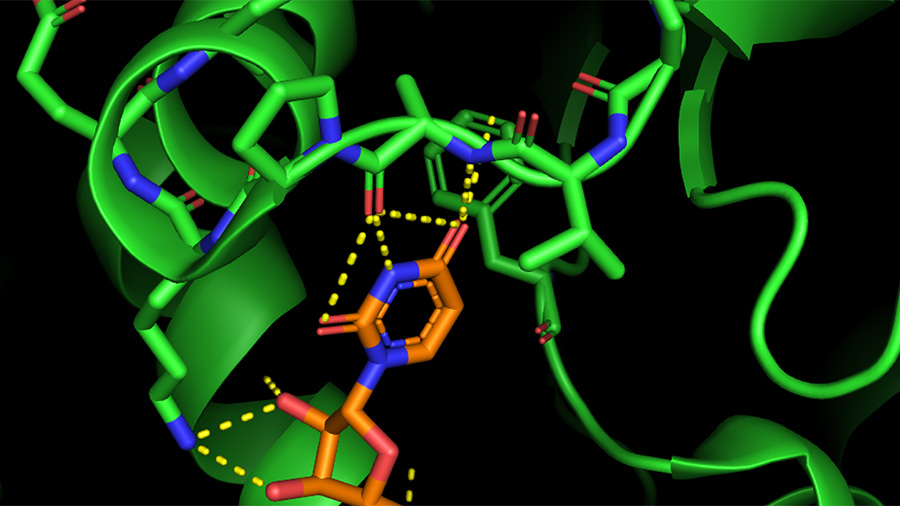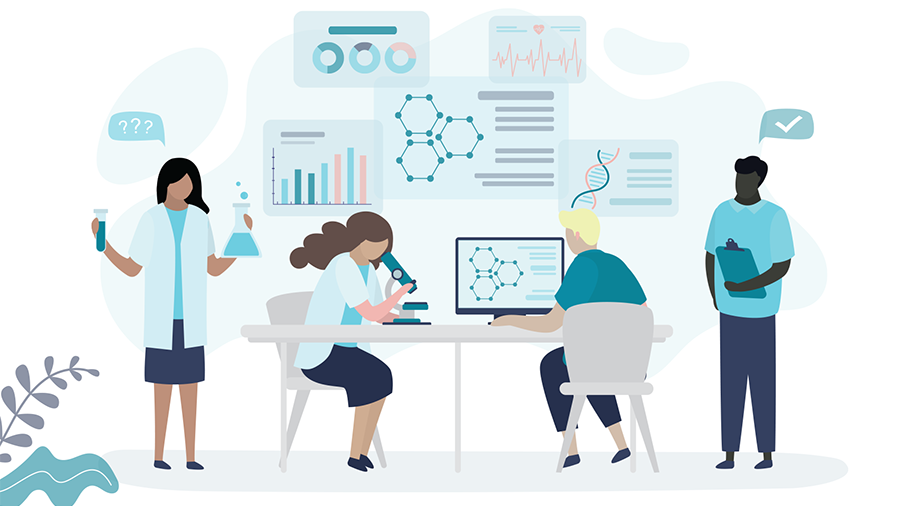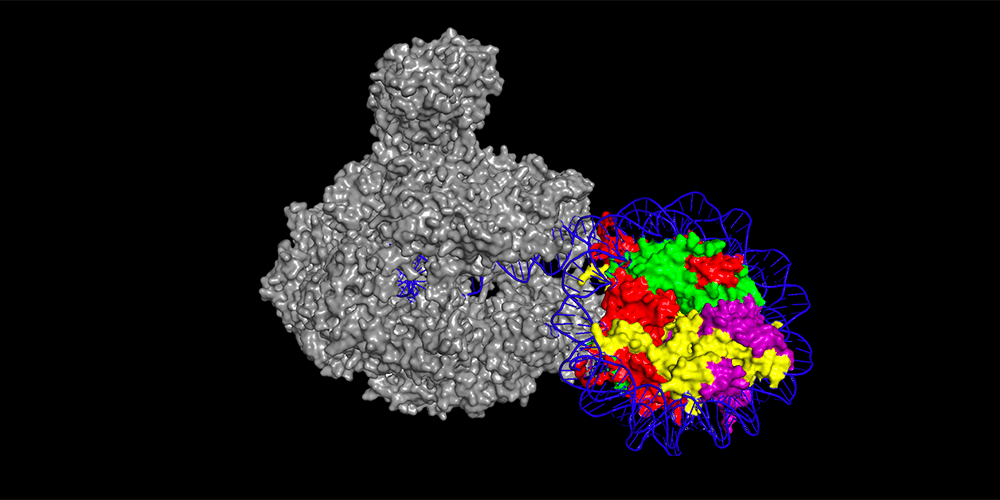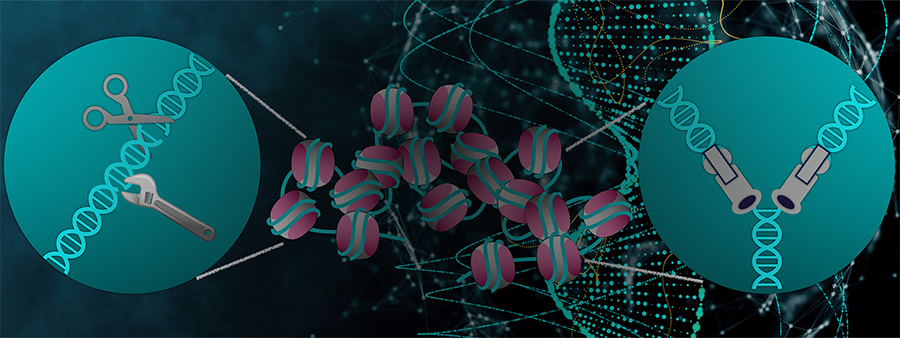Calendar of events, awards and opportunities
Every week, we update this list with new meetings, awards, scholarships and events to help you advance your career. If you’d like us to feature something that you’re offering to the bioscience community, email us with the subject line “For calendar.” ASBMB members’ offerings take priority, and we do not promote products/services. Learn how to advertise in ASBMB Today.
Survey of imaging users
The Center for Open Bioimaging Analysis maintains open-source software CellProfiler and ImageJ. COBA has partnered with Bioimaging North America and the Royal Microscopical Society to create a survey to assess the needs of the community for software and training materials. Take the survey.
June 1: NASEM event on reimagining science communication
The National Academies is hosting an in-person and virtual event titled "Reimagining Science Communication in the COVID Era and Beyond." The in-person event at the National Academy of Sciences building in Washington, D.C., will be on June 1. The fully virtual version will be on June 2. Another in-person version will be held in Irvine, California. Here's how they describe the program: "Sessions will feature the latest evidence, insights, and promising approaches for addressing critical challenges facing science communication—communication inequities, political polarization, uncertainty, and misinformation. Together, panelists and participants will generate new ideas and make connections that will help move these ideas into action." Learn more.

June 6: Gene expression poster abstract deadline
This in-person meeting in Kansas City, Mo., will showcase the most recent insights into the cis-regulatory code, how cis-regulatory information is read out by transcription factors, signaling pathways and other proteins, how cellular diversity is created during development and how we can study this problem using cutting-edge genomics technology and computational methods. The meeting will simultaneously examine the problem from an evolutionary perspective: how cis-regulatory elements evolve, how regulatory variation affects gene expression and phenotypes, how these changes have shaped development and parallel evolution, and how noise affects regulatory circuits and their evolution. The poster abstract deadline was extended to June 6, and the registration deadline is June 20. Learn more in this Q&A with two of the organizers.

June 6: O-GlcNAc meeting registration deadline
This in-person conference in Athens, Ga., will address the multitude of roles that the O-GlcNAc protein modification has in regulating nuclear and cytosolic proteins. It will bring together researchers from diverse fields to share their research, tools and experience in O-GlcNAc biology. The registration deadline is June 6. Submit an abstract. Learn more in this Q&A with organizers Gerald Hart and Lance Wells.
June 7: Webinar on FAIR and CARE principles for data sharing and reuse
The Federation of American Societies for Experimental Biology is holding a webinar exploring community-developed principles for data sharing and reuse, centered on interoperability, ethics and responsibility. This "salon," as they're calling it, is part of FASEB's DataWorks! initiative, which, by the way, has a contest with cash prizes. The webinar will be at 2 p.m. Eastern on June 7. Register.
June 8: Deadline to apply for ASBMB diversity scholarship
Deadline extended! The Marion B. Sewer Distinguished Scholarship for Undergraduates offers financial support to students who demonstrate an interest in the fields of biochemistry and molecular biology and enhance the diversity of science. Students whose social, educational or economic background adds to the diversity of the biomedical workforce or who show commitment to enhancing academic success of underrepresented students are eligible. The scholarship provides up to $2,000 toward undergraduate tuition costs for one academic year and can be applied to fall or spring tuition of the year following scholarship award notification. Up to ten scholarships will be awarded each academic year. Applications by individuals from underrepresented groups are encouraged, although all qualified applicants will be considered without regard to race, gender, color, ethnicity or national origin. Apply.

June 9, 16 & 23: Course-based Undergraduate Research Experience (CURE) Lunch and Learn Series
With the academic year winding down, now is the time to start looking ahead to next year. If you’re interested in incorporating a CURE into your classroom for the first time or looking to improve your use of CUREs, join colleagues as they share insights, consider strategies for implementation and lead attendees through activities to help you build or enhance CUREs in your curriculum. All events in this series begin at 1:30 p.m. Eastern and are open to ASBMB members only.
June 9: Identifying and overcoming barriers to CURE implementation at your institution
June 16: Authentic research opportunities for all through CUREs
June 23: Genomics education and research in the undergraduate classroom
June 9: NeuroChats journal club
The University of Texas Southwestern Medical Center's bioinformatics department has a webinar series called U-Hack Med NeuroChats. The next installment, at 11 a.m. Central time on June 9, will feature Mark Plitt, a grad student at Stanford University. He'll talk about his paper, "Experience-dependent contextual codes in the hippocampus." Register.
June 13: Grant deadline for ECRs studying sleep science
The American Academy of Sleep Medicine Foundation is accepting applications through June 13 for its Focused Projects Grant for Junior Investigators. This seed money is to be used for mentored projects. The award is $40,000 for a year. Learn more.

June 15: Late-breaking abstracts due for ASBMB mass spec meeting
This five-day conference will be held Aug. 14–18 in person in Cambridge, Massachusetts, and online. It will be an international forum for discussion of the remarkable advances in cell and human protein biology revealed by ever-more-innovative and powerful mass spectrometric technologies. The conference will juxtapose sessions about methodological advances with sessions about the roles those advances play in solving problems and seizing opportunities to understand the composition, dynamics and function of cellular machinery in numerous biological contexts. In addition to celebrating these successes, we also intend to articulate urgent, unmet needs and unsolved problems that will drive the field in the future. Late-breaking abstracts are due June 15. The registration deadline is July 1. Learn more.
June 15: Application deadline for genomics postdoc
Advances in Genome Biology and Technology and the Helen Hay Whitney Foundation have partnered to offer a postdoctoral fellowship for genomics scientists. Applications close June 15. Learn more.
June 15: Research!America Early Career Summit
This virtual event on June 15 is billed as offering career exploration and networking opportunities, professional-development workshops and more for early-career researchers. Sounds like it's worth checking out! Learn more.
June 16: Symposium on structural biology
The Oklahoma Cobre in Structural Biology at the University of Oklahoma is hosting its 10th annual structural biology symposium on June 16. Confirmed speakers include Hao Wu of Harvard University, Breann Brown of Vanderbilt University School of Medicine, Lorena Saelices of University of Texas Southwestern Medical Center, Satish Nair of the University of Illinois Urbana-Champaign and Erica Ollman Saphire of the La Jolla Institute for Immunology. Check here for details and to register.

June 22: ASBMB webinar about thriving in grad school
The qualifying exam is a major milestone in anyone’s graduate career, but once you’ve passed this exam, what comes next? How do you make the most of the middle years of your graduate experience and set yourself up for the next step in your scientific career journey? What are the expectations from your adviser, and what should your own expectations be? In this second installment of the ASBMB Education and Professional Development Committee’s “Insider perspectives” series, panelists will share their journeys through the qualifying exam and into the next phases of their training and career. You’ll hear from senior graduate students as well as established scientists about steps to take and things to consider when moving beyond the qualifying exam. See the speakers and register.

June 28: Becoming an NIH early-career reviewer
This webinar will feature the ins and outs of the Early Career Reviewer Program at the National Institutes of Health’s Center for Scientific Review, which gives emerging investigators an inside look at the scientific peer-review process. Elyse Schauwecker, a scientific review officer at CSR, will talk about the benefits of participating, eligibility, the application process and recent changes. There will also be time to ask Schauwecker questions about the program and other CSR opportunities for early-career scientists. Register.

June 29: ASBMB book club's first meeting
The ASBMB Women in Biochemistry and Molecular Biology Committee has launched a book club focused on gender equity for ASBMB members. The first book up for (virtual) discussion will be “What Works: Gender Equality by Design” by Iris Bohnet. Save the date: 2 p.m. Eastern on June 29. (Link to come!) Karlett Parra of the University of New Mexico and Susan Baserga of Yale University will lead the discussion. The next meeting will be about “The No Club: Putting a Stop to Women’s Dead-End Work” by Linda Babcock, Brenda Peyser, Lise Vesterlund and Laurie Weingart. Register.
July 10: Deadline for papers about open science policies
The Journal of Science Policy & Governance, the United Nations Educational, Scientific and Cultural Organization and the Major Group for Children and Youth announced in February a call for papers for a special issue on "open science policies as an accelerator for achieving the sustainable development goals." The deadline for submissions is July 10. To help authors prepare their submissions, the group will be hosting a series of webinars (April 8 & 29, May 20, and June 10) and a science policy paper-writing workshop (March 26–27). Read the call for submissions and learn more about the events.
July 15: Deadline to apply for Colorado PRIDE–AGOLD program
Head to beautiful Denver, Colorado, for a summer experience as a PRIDE (Programs to Increase Diversity Among Individuals Engaged in Health-Related Research) scholar. PRIDE is an initiative of the National Heart, Lung and Blood Institute that trains junior faculty from underrepresented backgrounds and/or with disabilities to advance their scientific careers and make them more competitive for external research funding. The University of Colorado PRIDE (led by Sonia C. Flores, who also leads the ASBMB Minority Affairs Committee) is one of nine national PRIDE sites. Its focus is on the "impact of ancestry and gender on omics of lung and cardiovascular diseases" (which is why it's called PRIDE–AGOLD). The program consists of two consecutive summer institutes (two and one week, respectively) that offer comprehensive formal instruction on multi-omics, data sciences and bioinformatics, with an emphasis on interpretations based on ancestry and/or gender; career development and grant-writing tools; pairing with expert mentors; and pilot funds to develop a small research project. Learn more.

July 14: Oral abstracts due for transcriptional regulation meeting
This in-person meeting will be held Sept. 29 through Oct. 2 in Snowbird, Utah. Sessions will cover recent advances and new technologies in RNA polymerase II regulation, including the contributions of non-coding RNAs, enhancers and promoters, chromatin structure and post-translational modifications, molecular condensates, and other factors that regulate gene expression. Patrick Cramer of the Max Planck Institute will present the keynote address on the structure and function of transcription regulatory complexes. The deadline for oral presentation abstracts is July 14. The deadline for poster presentation abstracts is Aug. 18. Learn more.

Aug. 2: Abstracts due for epigenetics and genome stability meeting
Most meetings on epigenetics and chromatin focus on transcription, while most meetings on genome integrity include little attention to epigenetics and chromatin. This conference in Seattle will bridge this gap to link researchers who are interested in epigenetic regulations and chromatin with those who are interested in genome integrity. The oral and poster abstract deadline and early registration deadline is Aug. 2. The regular registration deadline is Aug. 29. Learn more.

Call for virtual scientific event proposals
The ASBMB provides members with a virtual platform to share scientific research and accomplishments and to discuss emerging topics and technologies with the BMB community.
The ASBMB will manage the technical aspects, market the event to tens of thousands of contacts and present the digital event live to a remote audience. Additional tools such as polling, Q&A, breakout rooms and post event Twitter chats may be used to facilitate maximum engagement.
Seminars are typically one to two hours long. A workshop or conference might be longer and even span several days.
Prospective organizers may submit proposals at any time. Decisions are usually made within four to six weeks.

Take over the JLR Twitter account
If you are a graduate student, postdoc or early-career investigator interested in hosting a #LipidTakeover, fill out this application. You can spend a day tweeting from the Journal of Lipid Research's account (@JLipidRes) about your favorite lipids and your work.
IUBMB relocation support for displaced trainees
The International Union of Biochemistry and Molecular Biology is offering $2,000 to graduate students and postdocs displaced from their labs as a result of natural disaster, war or "other events beyond their control that interrupt their training." The money is for travel and settling in. Learn more and spread the word to those who could use assistance.
Enjoy reading ASBMB Today?
Become a member to receive the print edition four times a year and the digital edition monthly.
Learn moreFeatured jobs
from the ASBMB career center
Get the latest from ASBMB Today
Enter your email address, and we’ll send you a weekly email with recent articles, interviews and more.
Latest in Careers
Careers highlights or most popular articles

Upcoming opportunities
ASBMB's PROLAB award helps graduate students and postdoctoral fellows spend up to six months in U.S. or Canadian labs.

From humble beginnings to unlocking lysosomal secrets
Monther Abu–Remaileh will receive the ASBMB’s 2026 Walter A. Shaw Young Investigator Award in Lipid Research at the ASBMB Annual Meeting, March 7-10 in Washington, D.C.

Chemistry meets biology to thwart parasites
Margaret Phillips will receive the Alice and C. C. Wang Award in Molecular Parasitology at the ASBMB Annual Meeting, March 7-10 in Washington, D.C.

Decoding how bacteria flip host’s molecular switches
Kim Orth will receive the Earl and Thressa Stadtman Distinguished Scientists Award at the ASBMB Annual Meeting, March 7–10, just outside of Washington, D.C.

Defining JNKs: Targets for drug discovery
Roger Davis will receive the Bert and Natalie Vallee Award in Biomedical Science at the ASBMB Annual Meeting, March 7–10, just outside of Washington, D.C.

Upcoming opportunities
No matter where you are in your career and what future path you aspire to, everyone needs leadership skills. Join ASBMB for practical strategies for building and practicing leadership skills.
